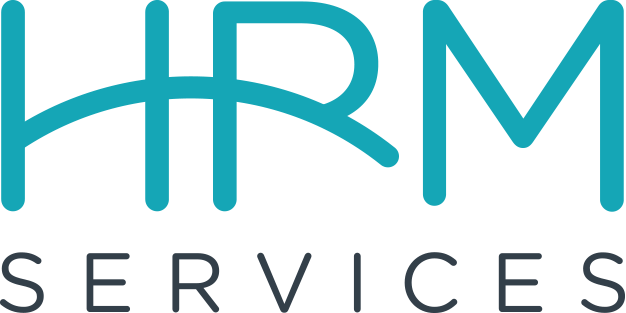
The format of today’s post follows along with November’s HR Hot Topic video.
Jodi: Welcome to November’s edition of HR hot topics! I’m your host, Jodi Schafer, and as always, I aim to make this the most informative five minutes of your month. And I’m really excited this month because, clearly, it’s not just me and the camera anymore, I’ve got Alissa Parks with me. Alissa is the newest member of our HRM team. And I just wanted to take this opportunity and have her share a little bit about her background and what she’s going to be bringing to us. And then I wanted to have a conversation with Alissa about the current landscape in terms of talent and what that might mean for you as a business owner, as you look at your package, and how you’re going to attract and retain talent in this really competitive market. So that’s going to be the topic of this month’s video, but without further ado, let’s have Alissa say hello to all of you watching and share a little bit about her background.
Alissa: Thanks, Jodi. Yeah, really happy to join the HRM team. A little bit about myself. I have over 20 years of experience in the public sector, mostly in government and nonprofit at the state level, and also working at county and community level. And in all things, kind of administration – in a more recent position, I was overseeing operations for an organization which included HR finance and all of our policies and procedures for the organization. So, I got a nice broad view of all the things that kind of intersect at the business level, which impacts HR. And so I’ve always loved working with people. I’ve done a lot of training and facilitation, enjoy working with groups, and kind of working in that HR role. I found I loved that part of it. And so I did get my certification in HR, and I’m loving that. And so I’m happy to bring those experiences to the team and to clients across the spectrum, really excited about this opportunity. I also have a passion for inclusion and equity efforts and so interested in pursuing that more and really helping businesses think authentically about how to think about inclusion and equity in their work, because I know this is an area that many businesses are interested in as well.
Jodi: Yeah, well, and that sort of dovetails into the conversation, right? Creating a workplace that people want to be a part of. And that’s always been a really important endeavor, I think just as an individual, as somebody that cares about relationships and about your corporate culture, but it also has an impact on your bottom line, but now more than ever as we all fight for talent that’s also incredibly important. We don’t want to be doing anything in our workplaces that would force a qualified candidate to leave us because it’s going to be really challenging perhaps to hire somebody to take their spot. And so on that note, I just wanted to share a couple of things. I was doing some research actually for a CEO group that I was going to be talking to this week. And some of these data points…
I mean, we sort of know it because we’re hearing from multiple sources, but when I started listing this out, the landscape was shocking. And I want to just share a couple of these with you. The first is that in the State of Michigan alone, our state has lost more than 200,000 people in our workforce since the start of the pandemic. And then when you look nationally, what’s happening for the first time in a really long time, this is sort of historically unusual. We have more job openings than we have unemployed people to fill them. So you’re all feeling that right now, right. A supply demand problem, but this is playing out across the national landscape in almost every industry. In fact, last month’s voluntary quits were at 3% – 3% of the US workforce quit their job in August alone.
So, I guess that wasn’t last month, the month prior. But I mean, think about that, voluntarily leaving because they have so many other options. And women especially, this is an area of the workforce where we’re seeing women leave. I think we’re down to the lowest rates since the 1980s. The female section of the workforce is the one that has most severely been hit here in terms of leaving the workforce. A lot of that might be related to childcare. I think there are a lot of issues quite honestly. And then we had 2 million people retire sooner than they had expected simply as a result of the pandemic. So all of that adds up to a really competitive labor market. And so I wanted to have a conversation with Alissa about what are some things that small business owners across industries can be doing, or should be doing to be an attractive place for your people to want to come to work and to want to stay working with you.
So I guess, let me just kick it to you, Alissa, what are some things that you’re seeing or hearing – what should our listeners be evaluating?
Alissa: I think one of the first things is thinking about benefits maybe in a different way. For many businesses, when we think about benefits, we think about health benefits, we think about retirement, and those are critically important. Those are still factors that workers are looking at when they’re pursuing employment, but that’s also expanded. We’re seeing that more and more people are looking for flexibility. That might be in scheduling, that might be with remote work, depending on your business model. It might be sharing positions. They may be looking for help with childcare. Childcare, now more than ever, has had a spotlight on it as a core workforce support. And so you see more and more businesses that are starting. I’ve heard of businesses who brought childcare on site, which is pretty extensive, there’s licensing related to that, but even providing additional stipends or subsidy to help support childcare, being flexible with schedules to help people kind of manage the childcare. We’re especially seeing that for women, either staying at home to accommodate that or needing that additional support.
So, thinking beyond just your basic benefits package and what other things are attracting people. In addition, I think people are becoming more and more mission focused or thinking about how they want to spend their time, right? And so what are they passionate about? We’re seeing more and more people deciding things like, oh, I might want to change a career.
Jodi: This term pandemic epiphany, right? This sort of existential evaluation of, I have so many years and I have certain time, talents. And how do I want to make the most of those? And this pandemic is something that cuts across age. It cuts across race. It cuts across a lot of the generations and different demographics in our workforce. We all experienced this really sort of life altering event together. And it’s impacting all of us slightly differently. This idea that we’re evaluating priorities, I think is kind of a common theme across the spectrum. And you’re right. So am I spending it in the right place with people who believe what I believe and what can you do to reinforce that? So on the mission-driven side, what are you saying?
Alissa: I think businesses should really think about looking internally. For example, what can we offer that is accurate and true, but also can attract anyone. If you are a nonprofit, really pushing that mission focus and what you’re passionate about, but also if you’re in the private sector, what makes you unique? How do you not only support your employees, but what are your services that are really, say in the healthcare field, how are you serving people that people might want to be a part of? So, think about your marketing in that way, and also going beyond just posting job descriptions. Think about a posting different than a description, and what your posting should talk about right out of the gate – your benefits, but also about the type of place that you are, and who you’re trying to attract.
Jodi: And that’s a shift because historically when positions were posted, it was all the things we expect from a candidate. And we really have to turn that on its head and instead lead with all of the things that candidate can expect from us, why would you choose us? So it’s really a sales piece. It’s a marketing piece. And as Alissa said, it has to be true because you’re not talking to everyone. You’re talking to the kinds of people that you actually want to bring into your workforce, but leading with the why – ‘why should you pick me’ is going to be key, especially when there are so many postings that are hitting those candidates in the face over and over. So a couple of things there, I think it’s a really nice place to be thinking for Q4 of this year. And as you look into the upcoming calendar year, how are you going to advertise and live the values of your workplace and create somewhere where people want to be a part of, especially in this really competitive market. I don’t see that changing anytime soon.
So with that, I will thank Alissa. We’re excited to have her as part of the team. Thanks for being listeners as always. And we’ll join you next month for our final episode of the calendar year in December. And until then folks, stay safe!

